Traditional Portuguese crafts reflect the country's rich cultural artwork, offering a unique glimpse into its artisanal heritage. The range of traditional Portuguese crafts includes vibrant, hand-painted azulejos that adorn walls and floors, and delicate filigree jewelry showcasing the meticulous skill of Portuguese goldsmiths. Additionally, cork products represent an eco-friendly and innovative use of one of Portugal's most abundant resources, while hand-woven textiles bring warmth and color to any setting. Each traditional Portuguese craft piece carries with it the story of its maker, the tradition of the craft, and the spirit of Portugal
In 2024, the allure of Portuguese craftsmanship continues to thrive, offering an array of stunning examples of treasures that encapsulate the essence of this vibrant nation.
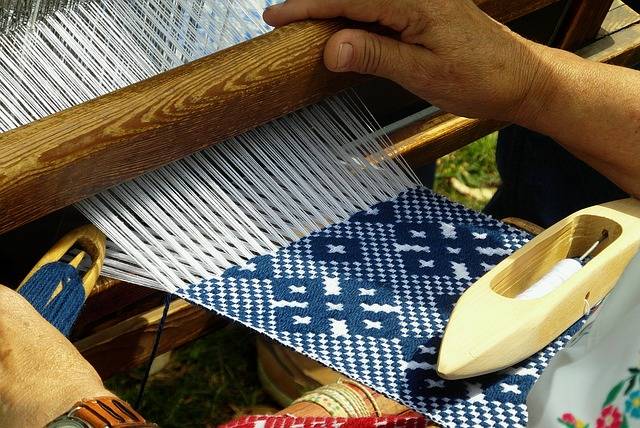
Top 10 Portuguese Crafts To Bring Home
Top 10 Portuguese crafts to bring home are Traditional Pottery, Handwoven Baskets, Azulejos, Cork Products, Filigree Jewelry, and Portuguese Knitwear. Stepping into Portugal, I found more than just a destination; it's a living canvas of heritage and creativity.
Whether you're a seasoned traveler or a newcomer like me, the traditional crafts here weave tales of culture and passion. In 2024, the country beckons with treasures like hand-painted azulejos, delicate filigree jewelry, and cozy Portuguese knitwear. Each piece feels like a personal connection to the artisans' skill and Portugal's soul.
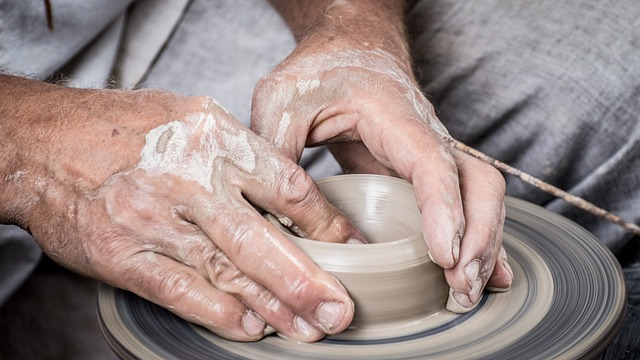
1) Traditional Pottery
Traditional Pottery in Portugal stands as a living testament to the nation's rich ceramic legacy, echoing centuries of artistic tradition. From the mesmerizing azulejos, intricately painted tiles that grace buildings and homes, to the rustic allure of clay cookware, each piece is a masterpiece, showcasing the intersection of artistry and functional craftsmanship. The hand-painted ceramics by the portuguese artisans, in particular, capture the essence of Portugal's vibrant culture through their intricate designs, vibrant colors, and patterns that narrate stories of the region's history and identity.
For those fortunate enough to find themselves in Portugal, delving into the world of traditional pottery becomes a sensory journey. Whether exploring local markets, artisanal shops, or bustling streets, the opportunity to acquire hand-painted ceramics becomes a cherished connection to the country's soul. These pieces not only serve as beautiful mementos but also carry with them the tangible heritage of a nation that has perfected the the art form of transforming clay into works of enduring beauty.

2) Handwoven Baskets
In the heart of Portugal, handwoven baskets emerge as more than mere utilitarian objects—they are living works of art. Crafted with a mastery that has been passed down through generations, these baskets are a testament to the skill, tradition, and unique stories embedded within each piece. Whether it's the familiar form of a traditional breadbasket or an intricately designed decorative piece, handwoven baskets in Portugal hold a charm that transcends their functional purpose.
These artisanal creations become a captivating addition to any collection of Portuguese crafts. As a traveler or collector, the opportunity to acquire these handwoven treasures is an invitation to bring home not just a beautifully crafted item but a piece of Portugal's cultural heritage. The diverse shapes floral motifs, and sizes of these baskets echo the creativity and artistry of the craftsmen, making each piece a distinctive reflection of the country's rich tradition of weaving and storytelling through craftsmanship.

3) Azulejos
Azulejos, the iconic hand painted ceramic tiles here, are a visual feast that adorns many Portuguese buildings. These tiles often depict intricate patterns, historical scenes, or maritime motifs. Consider bringing home and painting a set of azulejos to add a touch of Portuguese charm to your living space.

4) Cork Products
Portugal is the world's largest producer of cork, and the country's skilled artisans have mastered the art of transforming this sustainable material into exquisite products. From cork handbags and hats to coasters and wallets, cork items are both stylish and environmentally friendly.
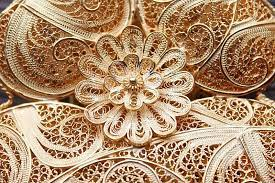
5) Filigree Jewellery
Portuguese filigree jewelry is a delicate and intricate craft that has been perfected over centuries. This traditional style involves twisting and weaving fine threads of gold or silver into intricate patterns, creating stunning pieces like earrings, necklaces, and bracelets. Investing in filigree jewelry is not just acquiring a fashion accessory but a piece of Portugal's rich cultural heritage.
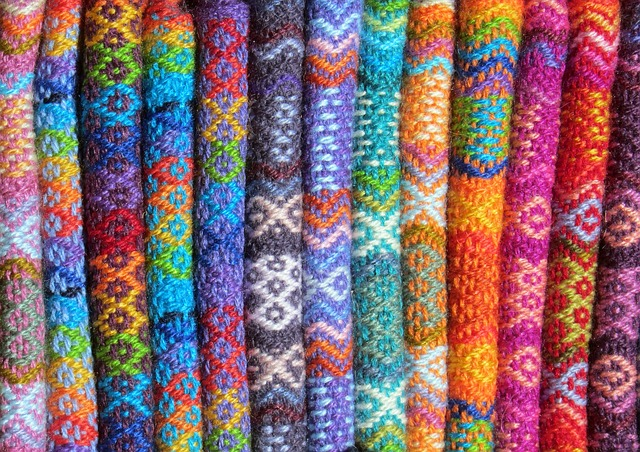
6) Portuguese Knitwear
Portugal has a long-standing tradition of producing high-quality knitwear. From cozy sweaters to intricate shawls, Portuguese knitwear combines traditional techniques with contemporary designs and fabrics. Look for locally crafted knitwear to keep you warm in style.
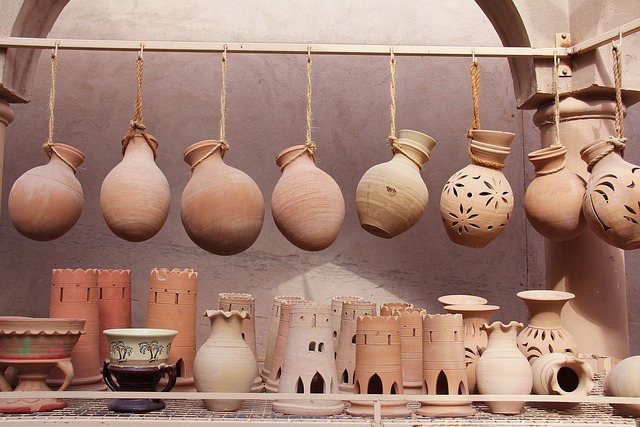
Where To Buy Portuguese Crafts?
Places to buy Portuguese crafts are Feira da Ladra (Lisbon), A Vida Portuguesa (Lisbon), Mercado do Bolhao (Porto), Rua de Santa Catarina (Porto), Alentejo (Local Craft Workshops), Barcelos, and Viana do Castelo. Exploring the vibrant markets and artisanal shops in Portugal is an integral part of the craft-buying experience. Here are the notable places to consider during your craft shopping journey.
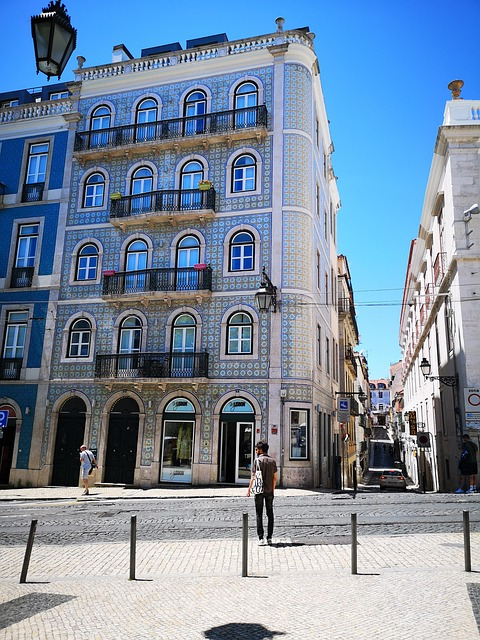
1) Feira da Ladra (Lisbon)
Known as Lisbon's flea market, Feira da Ladra is an ideal spot in town for finding unique crafts, including ceramics and textiles. This bustling market is a treasure trove for those seeking one-of-a-kind, decorative pieces that reflect the eclectic spirit of Portugal's capital.
2) A Vida Portuguesa (Lisbon)
A Vida Portuguesa is a renowned store in Lisbon, famous for offering traditional Portuguese items, from ceramics to soaps. This carefully curated shop provides a delightful shopping experience, allowing you to bring home authentic pieces of Portuguese craftsmanship.
3) Mercado do Bolhao (Porto)
For a more traditional market experience, head to Mercado do Bolhao in Porto. This market is a hub of local artisans, offering a variety of crafts, from pottery to textiles. Immerse yourself in the lively atmosphere and explore the stalls to find unique treasures.
4) Rua de Santa Catarina (Porto)
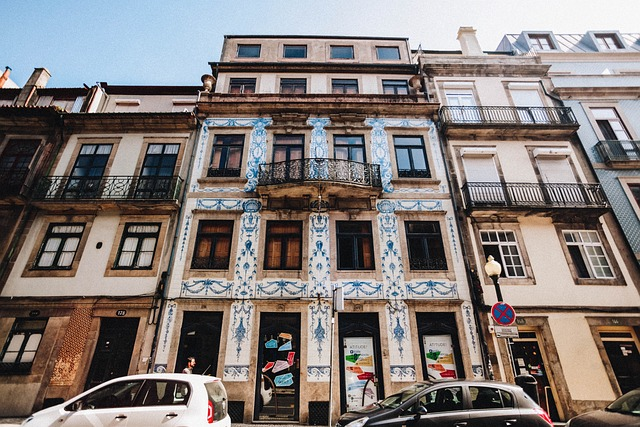
Situated in the heart of Porto, Rua de Santa Catarina is a shopping destination that offers traditional Portuguese goods, including cork products and filigree jewelry. Stroll along this bustling street, and you'll encounter a diverse array of crafts that capture the essence of Portuguese artistry.
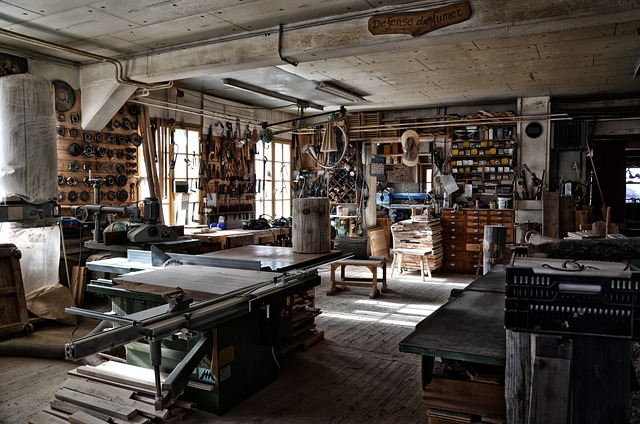
5) Alentejo (Local Craft Workshops)
The region of Alentejo is known for its pottery, lace and blankets. Explore local craft workshops in Alentejo to witness artisans at work and acquire handmade crafts that showcase the region's distinct artistic traditions.
6) Barcelos
Barcelos is famous for its weekly market, one of the largest in Portugal, where tourists can find ceramics, embroidered cotton, linen, and wickerwork. The vibrant market atmosphere adds to the charm of discovering unique and authentic Portuguese crafts.
7) Viana do Castelo
Viana do Castelo is known for its gold filigree jewelry, offering an opportunity to acquire exquisite pieces that reflect the region's cultural heritage. Explore the local shops and markets to find finely and meticulously crafted, filigree jewelry that tells a story of Portuguese craftsmanship.
Conclusion
Bringing home traditional Portuguese crafts is not just about acquiring beautiful items; it's a journey into the heart of Portugal's cultural heritage. Whether you opt for the timeless beauty of azulejos, the intricate craftsmanship of filigree jewelry, traditional handicrafts or the functional artistry of pottery, each piece tells a story of a nation proud of its artistic traditions. As you explore the vibrant markets and artisanal shops, let the spirit of Portugal guide you in discovering the perfect crafts to bring home in 2024.
Frequently Asked Questions
Q1: Are Portuguese crafts expensive?
The price of Portuguese crafts can vary depending on factors such as craftsmanship, materials used, and the uniqueness of the item produced. While some crafts may be more affordable, others, especially those with intricate designs or made from high-quality materials, may be priced higher.
Q2: How can I ensure the authenticity of the crafts I purchase?
To ensure the authenticity of your purchases, buy from reputable sources such as established markets, artisanal shops, or well-known stores specializing in Portuguese crafts. Ask the seller about the origin, nature and craftsmanship of the item, and look for certifications or labels that vouch for its authenticity.
Q3: Can I bargain when buying crafts in Portuguese markets?
In traditional markets like Feira da Ladra or Mercado do Bolhao, bargaining is often a customary practice. However, it's essential to approach it with respect and sensitivity. In established stores or boutiques, prices are generally fixed.
Q4: Are there any restrictions on bringing Portuguese crafts back home?
While most Portuguese crafts can be brought home without issues, it's advisable to be aware of any restrictions or customs regulations regarding certain materials or products. For example, items made from protected natural materials, wildlife or endangered species may face restrictions.
Q5: What makes Portuguese crafts unique?
Portuguese arts and crafts are unique due to the country's rich history, cultural diversity, and the influence of various artistic traditions. The combination of traditional techniques with contemporary designs results in crafts that have unique technique and are both authentic and visually captivating.
